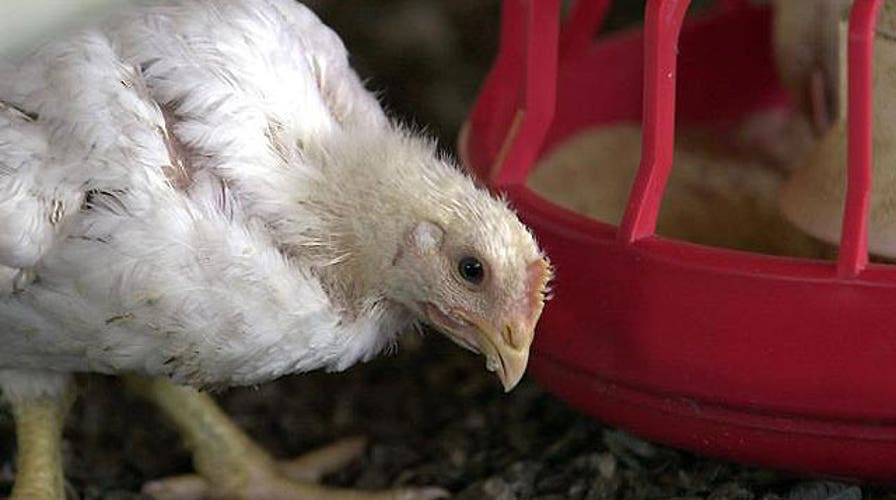Fast-food chains Burger King and Tim Hortons announced big changes for 2017. Both chains will begin serving only chicken raised without the use of antibiotics -- a move the owners of both brands, Restaurant Brands International, say is "critically important" to human medicine.
Restaurant Brands expects the changes to be fully implemented in U.S. stores in 2017 and in Canada in 2018.
According to a report by the FDA, approximately 70 percent of all antibiotics used in the United States are fed to farm animals. Today, the agency estimates that only 20 percent of antibiotics, which were originally developed to protect people, are actually used to treat infections in humans.
BURGER KING, KFC AND OTHERS FAIL IN STUDY ON ANTIBIOTIC USE AT FAST FOOD CHAINS
The practice of giving antibiotics to farm animals, commercial farmers say, helps promote the animals' growth and keep them free of diseases in increasingly crowded spaces. But drug use has been linked to the development of drug-resistant pathogens aka “superbugs” – considered by many as a ticking time bomb for global health.
The U.S. Centers for Disease Control and Prevention estimates that at least 2 million people in the country are infected with drug-resistant bacteria each year and that 23,000 die as a direct result.
Although committing to change, Austin Wilson, environmental health program manager for As You Sow, told Reuters that the company's new plan is "disappointing, since it is weaker than the standards set in the last year or two by Tyson, McDonald’s and Wendy’s."
McDonald's Corp has removed all antibiotics important to human medicine from its U.S. chicken supply chain, and Wendy's Co said in August it would end its use of chickens raised with antibiotics by 2017. And Tyson Foods Inc, the biggest U.S. chicken processor, has said it intends to stop using all antibiotics important to human medicine to raise its chickens in 2017.
FOR THE LATEST FOOD FEATURES FOLLOW FOX LIFESTYLE ON FACEBOOK NOW!
The pressure is on by shareholders and consumers to get smart about antibiotics, and according to authors of a report done by a consortium of consumer and food safety groups, "This year [2016], twice the number of surveyed companies received a passing grade compared to last year.”
The reported continued,"This largely reflects partial commitments on the part of those moving to transition their chicken supplies away from routine use of antibiotics."

